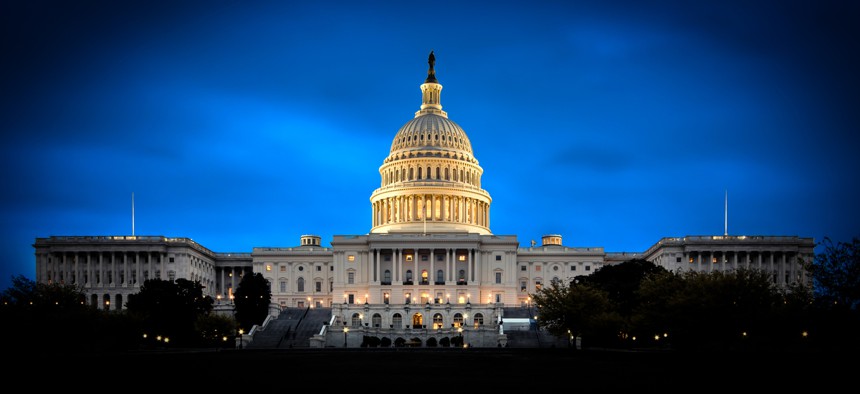Cyber Amendments to Watch in the House’s Defense Authorization Bill

Keith Lamond/Shutterstock.com
The House Rules Committee is considering more than a dozen cyber-focused amendments to the National Defense Authorization Act, a must-pass policy bill.
The House Rules Committee will consider a slew of amendments to a major defense policy bill Tuesday afternoon, including amendments that address major congressional cybersecurity priorities.
An amendment from Rep. Seth Moulton, D-Mass., for instance, would prohibit President Donald Trump from eliminating the role of White House cyber coordinator, a move that National Security Adviser John Bolton commenced last week.
Another amendment from Rep. Sheila Jackson Lee, D-Texas, would direct the Pentagon to prepare advanced plans to defend against state-sponsored cyberattacks targeting U.S. elections.
If they’re approved by the Rules Committee, the amendments will be considered individually on the House floor before a final vote on an already cyber-heavy National Defense Authorization Act.
That process is expected to begin Tuesday evening
The Senate is still compiling its version of the annual must-pass bill.
Here’s a rundown of cyber amendments the Rules Committee will consider:
- Amendments from Rep. Lou Correa, D-Calif.:
- Urge an update of the Defense Department cyber strategy to focus more on cyber partnerships with NATO allies and on offensive cyber strategy.
- Require a study on increasing military recruitment for cyber and other specialties from historically African American, Asian American and Hispanic universities and colleges.
- Require a report on Russian hackers targeting Defense Department information technology systems.
- Amendments from Rep. Sheila Jackson Lee, D-Texas,:
- Amendments from Rep. Jimmy Panetta, D-Calif.:
- Establish a Department of Defense Cyber Institute as a principal link between the department and private tech companies as well as universities and other non-government cyber players.
- Direct the Defense Secretary to establish a pilot program to extend the sharing of cyber threat information to contractors, “including small and medium-sized manufacturers, who otherwise do not have appropriate security clearance.”
- An amendment from Rep. Steve Pearce, R-N.M., expands Defense Department weapons testing requirements in cybersecurity among other areas.
- An amendment from Rep. Derek Kilmer, D-Wash., establishes a 5-year pilot program of National Guard cyber civil support teams in 10 states.
- An amendment from Rep. Brendan Boyle, D-Pa., requires a report on U.S. cyber cooperation with Ukraine.
- An amendment from Rep. Pete Aguilar, D-Calif., expands Defense Department cyber scholarships for students from historically African American, Asian American, and Hispanic universities and colleges.
- An amendment from Rep. Vicente Gonzalez, D-Texas, “requires the secretaries of the Army, Air Force, and Navy to encourage high schools with U.S. Junior Reserve Officers' Training Corps to include cybersecurity educational programs and awareness in the curriculum.”
- An amendment from Rep. Ron DeSantis, R-Fla., denies any funds for cyber “collaborations with the Russian Federation or the People’s Republic of China.”
- An amendment from Rep. Darren Soto, D-Fla., officially adds cybersecurity and computer programming in the Junior Reserve Officer Training curriculum.






